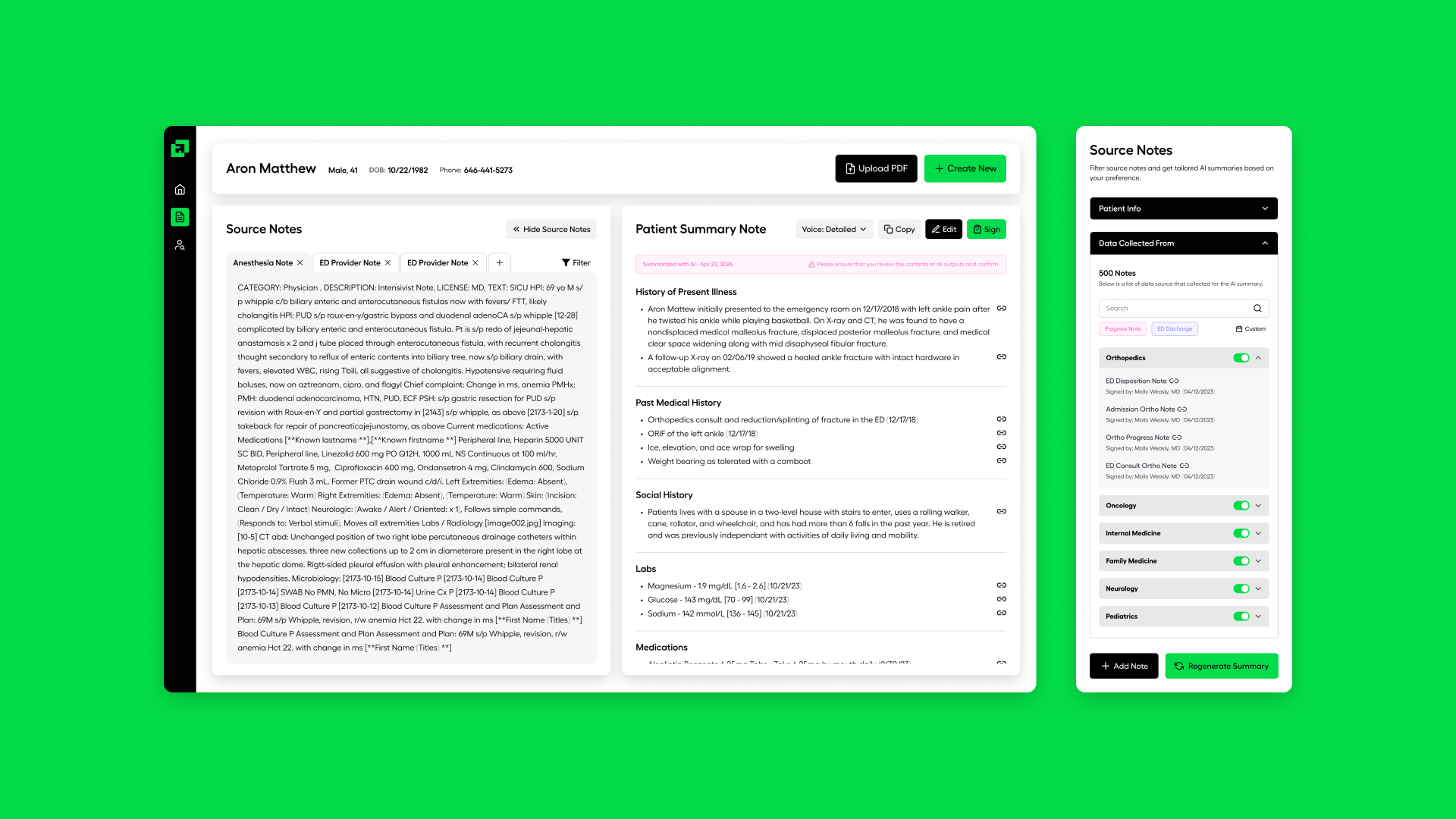AI Summarization of Clinical Documentation; Usability Study and User-Centered Design
Lisa Jeong
Advisor: Kari Love
Abstractive Health – A Clinical AI Solution that streamlines the clinician documentation process by summarizing hundreds of notes in a patient chart

Abstract
Electronic Medical Records (EMRs) play a pivotal role in modern healthcare by storing patient data, enhancing care efficiency, and facilitating communication among providers. However, the extensive nature of EMRs poses challenges, leading to inefficiencies and increased workload for healthcare providers. Summarizing patient records becomes crucial to streamline workflows. AI-driven summarization tools, exemplified by Abstractive Health, offer a solution by automating this process, thereby improving efficiency and patient care.
This study focuses on optimizing the application of Abstractive Health for clinicians. It aims to integrate the AI summarization tool into physicians' workflow seamlessly. Objectives include assessing how physicians interact with the tool, comparing AI-generated summaries with original medical notes, and effectively integrating revised information into the EMR system. The research investigates whether physicians find it intuitive to access original notes from summaries and their preferences for editing within the application or EMR.
Furthermore, the study seeks to enhance the tool's user interface based on user interactions and feedback, with a focus on improving navigation ease and information clarity. It also evaluates suggestions from participants to optimize the tool's functionality, determining feasible approaches for integration. Overall, the research aims to provide valuable insights into effectively incorporating AI technologies into healthcare settings, enhancing usability, and aligning with user needs.
By streamlining the clinical documentation review process and improving physician engagement with the AI tool, the study contributes to more efficient healthcare practices and patient care delivery. Ultimately, the research aims to enhance the integration of AI-driven technologies into healthcare settings while ensuring usability and user-centered design principles are upheld.

Technical Details
I partnered with a NYC-based startup named Abstractive Health for the NLP technology. I led the end-to-end design process from user research, data analysis, wireframing, prototyping, and writing a paper. Tools: Figma, Photoshop, Illustrator

Research/Context
The process of this study comprises four phases: two phases of user research, design iterations, followed by a usability evaluation. Each phase of user research includes both quantitative and qualitative approaches. Through the System Usability Scale(SUS) and Net Promoter Score(NPS) questionnaire, I collected numerical data points to measure how the Abstractive Health application helped improve physicians’ workflow efficiency. With user interviews, I gathered user perspectives in a more open and unconstrained manner. During the interview, I ran the moderated usability testing, participants were asked to perform given tasks, provide feedback, and answer follow-up questions related to their experience. For two phases of user research, we recruited MS3 and MS4 medical students, residents, and attending physicians across the US covering specialties such as dermatology, internal medicine, radiology, plastic surgery, anesthesiology, interventional radiology, obstetrician-gynecologist, and family medicine. 29 participants for Phase 1 and 14 participants for Phase 2 were recruited. For the data analysis, the data were categorized into broad themes, followed by grouping labeled data from each theme into three distinct categories: areas for improvement, commendable aspects, and suggestions for enhancement. Subthemes conveying similar ideas were further categorized.